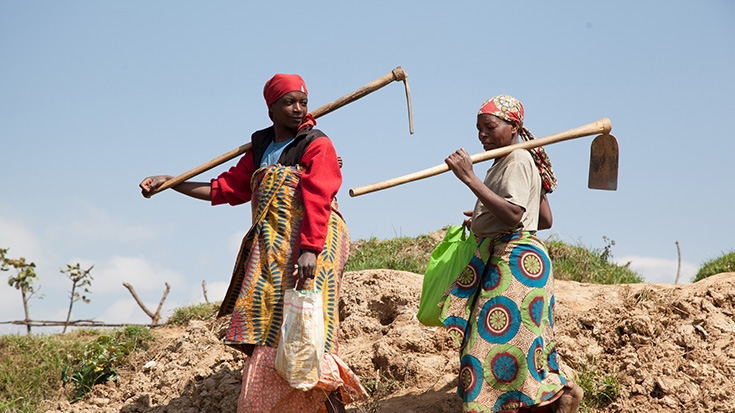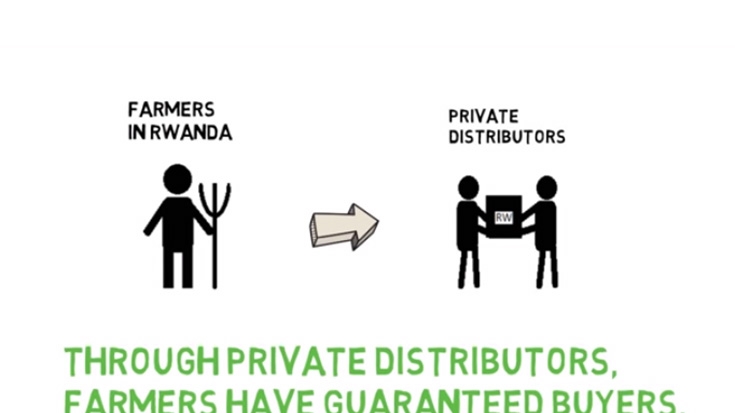Strong agricultural performance is powering Rwanda’s economic growth, rising from 4.7% in 2013 to 7% in 2014. Between 2000 and 2012, GDP growth averaged 8.1% per year, largely led by agriculture.
“Rwanda’s agricultural transformation marks a significant achievement in the country’s ongoing fight against poverty,” says Carolyn Turk, World Bank Country Manager. “We look forward to strengthening our collaboration in this vital sector of the Rwandan economy.”
As is the case with tropical farming, Rwandan agriculture is largely rain-fed and time-honored cycles of planting and harvesting are subject to the vagaries of nature. While hillside agriculture makes for splendid scenery, farming the slopes is a toil, frequently pitting the will of farmers against erratic weather. Droughts can exact a heavy toll while heavy rainfall can wash away standing crops, erode soils, and damage hand-built terraces, pushing farmers deeper into poverty.
The World Bank, along with partners like the Global Agriculture and Food Security Program (GAFSP), is financing ongoing strategic projects worth $265 million – on land husbandry, water harvesting and hillside irrigation, rural sector support, and value chain development in the agriculture and livestock sectors – all of which are delivering solid results.
For example, a sustainable land management project is helping to boost agricultural productivity on hillsides by using a modified watershed approach to control erosion. The project aims to help farmers fight erosion on nearly 20,000 hectares in 12 districts including Karongi, Nyanza and Gatsibo, and provides reliable irrigation on 2,368 hectares. The project is also helping farmers to grow snow peas for sale in international markets.
Rwanda’s agricultural transformation has made farmers more optimistic about the future. “Previously, people were abandoning farming to find alternative forms of income,” said Elias, a potato farmer in Karongi. “But now, everyone is resuming farming again.”
The Rugeramigozi marshland in the Southern Province offers a vivid example of how assured irrigation is having transformational impact. Here, the rural sector support project financed construction of a small dam with a storage capacity of 260,000 cubic meters. Then, Rugeramigozi farmers grouped themselves into a cooperative, registered it as a legal entity, and organized themselves into 55 self-help groups (the majority being women). In a remarkable show of collective vision and responsibility, over 96% of water users have paid water use fees to ensure regular maintenance of critical irrigation infrastructure. Yields of major food crops such as beans, maize and rice have risen – rice farmers now average four tons per hectare compared to only one ton earlier. The rice is sold through the local cooperative thereby improving food and nutrition security in the immediate vicinity of the marshland that would have otherwise remained fallow and unproductive.
“Rwanda’s experiences provide meaningful lessons on how a well-performing agriculture and food sector can make a sizeable dent in poverty,” said Severin Kodderitzsch, Manager in the World Bank Agriculture Global Practice. “We hope that these pioneering successes can be replicated more broadly across eastern Africa for maximum development impact.”


